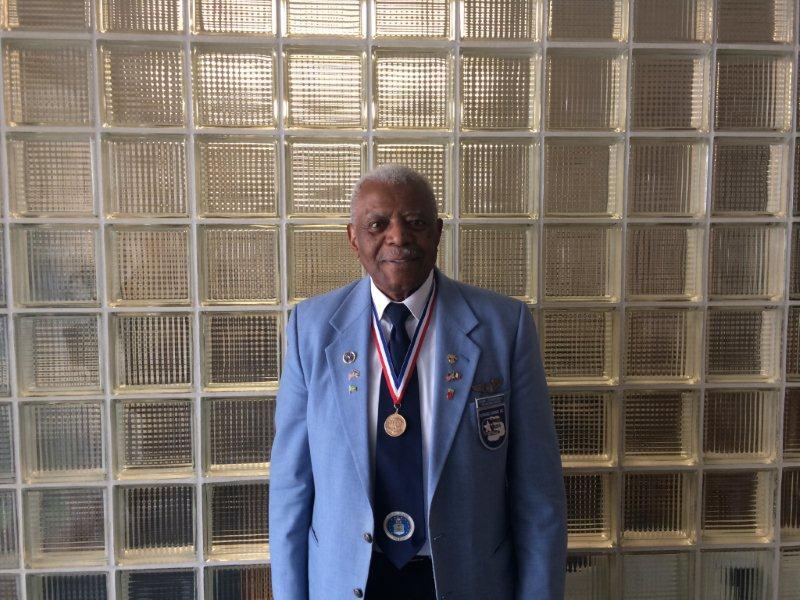TOWAMENCIN – African Americans’ contributions to the development, protection, and success of our nation were, and still are incredibly impactful. Without their sacrifices, the nation we know and love today might not have been formed. With the entire month of February dedicated to black history appreciation, it is important that the youth today realize the significance of their courageous efforts to better a country that for so long restricted them. And that message is exactly what one man wanted to emphasize yesterday, Dr. Eugene Richardson.
Dr. Richardson, a graduate of the Tuskegee Institute and a former African American pilot, came to talk to students interested in the accomplishments of black aviation. He came across with a distinct message that blacks were not taking a backseat in history, but on the forefront of new things back then.
“People need to learn that [blacks] were more than just slaves back in history. They made a significant contribution to this country” said Richardson after the presentation.
Dr. Richardson endured the same segregation that all colored people of his time went through, but he and his fellow blacks felt it even more when trying to become pilots.
“You had to understand that you were a second class citizen… We didn’t get any publicity as being pilots, and as a matter of fact, the military did everything they could to suppress the information about blacks being pilots.”
Richardson explained the formation and successes of the WWII fighter group, nicknamed the ‘Red Tails’ after the red paint on their P-51s. After proving themselves to the whites in the air over the Italian theatre, they were assigned to escort USAF bombers on bombing missions; a job they excelled at.
“The other crews learned that the color of the skin didn’t matter, but it was about the amount of protection they were going to get, and they accepted us” said Richardson.
The group was eventually recognized with the Congressional Gold Medal in 2007.
Richardson also made a point to mention his fellow Tuskegee Airman who was there with him, Aaron Watkins, a Vietnam helicopter pilot who achieved over 1000 mission hours. He also mentioned others who came before him, including black pilots Charles Anderson, Bessy Coleman, and Eugene Bullard.
The presentation had each student focused on the speaker, and it was a great way for them to feel connected to a greater chapter of American history; one that might not be as familiar George Washington or Christopher Columbus.
The blacks, not only of the Tuskegee Airmen, but of the entire colored population just wanted to prove that they could soar among the clouds.
“We wanted to prove that we were fully human as anybody else and had the skills that anybody else had. We were hoping for a time when the country in general would accept individuals as people. It’s just a different cover, that’s all.”


